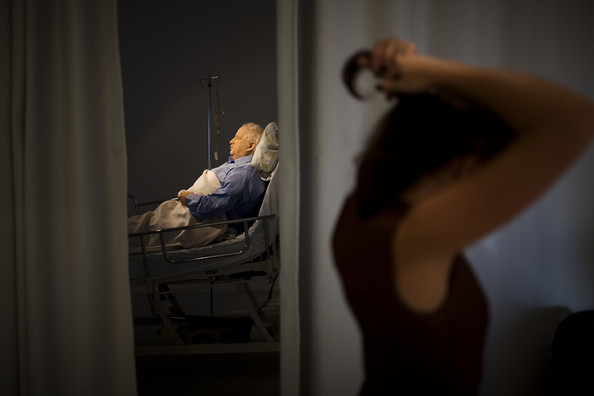I know I go on about this, but I think it important. Long, long life is getting to be a problem. Thirty years ago dying was a relatively brief, often unexpected episode. Clever medics can now prolong it – intolerably and expensively.
That last goodbye for most of us just keeps getting put off and the state has to find more and more money for more and more tottering and tumbledown folk. Not for me, I drink and smoke at lot, I’ll go down like a felled ox thank god when that big vein in my forehead goes bang. But you self-denying abstinence- and exercise freaks – how many years of decrepitude, double incontinence and dementia is it all buying you?
Here’s some food for thought, perhaps:
In the Jan Oldie magazine there’s an interview with a man called John Barnes. He’s eighty-something and fit as a flea. The interviewer asks him this question: ‘Have you found a way of coming to terms with death?’ And he replies: “You have to learn to accept that you don’t come to terms with it. Sometimes I think that people who’ve got blind religious faith and believe they’re not going to die are the luckiest. My feelings swing to extremes. Life seems marvellous when my old ramblers [he takes oldies walking] are enjoying sunshine in the country, when I’m holding an attractive girl in a dance, or when I’m entertaining a crowd of people with my songs. The rest of the time I wonder whether the NHS ought to be spending so much effort on keeping me alive.”
Over at the Morialekafa blog we read this:
Somehow I found myself last night in a discussion of what should happen to old people if there is not enough money available to keep them all alive. That is, would there ever be enough money available for health care for all, and if not, what about “death panels.”
You are all doubtless http://quotecorner.com/online-pharmacy.html aware of the claim that Eskimos would sometimes leave their old people to freeze to death when there was not enough food to feed everyone. There is little doubt that old people accepted this as a necessity and perhaps even volunteered themselves …
First of all, I doubt that anyone really knows very much about what happens to old people in the United States at this time. For example, it is clear that the suicide rate for those over 65 goes up rather sharply … I think it is entirely possible that many of these suicides are deliberate senilicides, carried out to relieve the potential burden on their survivors, but does anyone really know this? …
How much is a week of life, when one is ninety, really worth?
…
Where I worked for a time in the New Guinea Highlands, when a person is considered so old they are obviously near death, their survivors and others hold a funeral ceremony for them while they are still alive, to let them know they are respected and will be missed (also to placate their potential ghost so it will not hang around causing misfortune). These occasions, perhaps needless to say, are very emotional, the speeches can be endless, and the oldsters are sometimes overcome, weeping and even falling to the ground. This seems to me to be a more sensible and genuine way of saying goodbye and expressing grief than by feeling guilty and regretting you did not do and spend more to prevent the inevitable. [Source]
Now hop over to the excellent Death Reference Desk for a series of articles about Republicans and Tea Party nutters in the US who either out of stupidity or malignity have been confusing end of life planning (a now ex-component of the Obama Patient Protection and Affordable Care Act) with death panels. [Source]
It’s a whole new ethical area, isn’t it? As abortion once was…


